Qantas hopes to fill middle seats with 'social distancing exemption'
As travel opens back up, Qantas wants to be able to sell every seat on every flight, without blocking middle seats from sale.
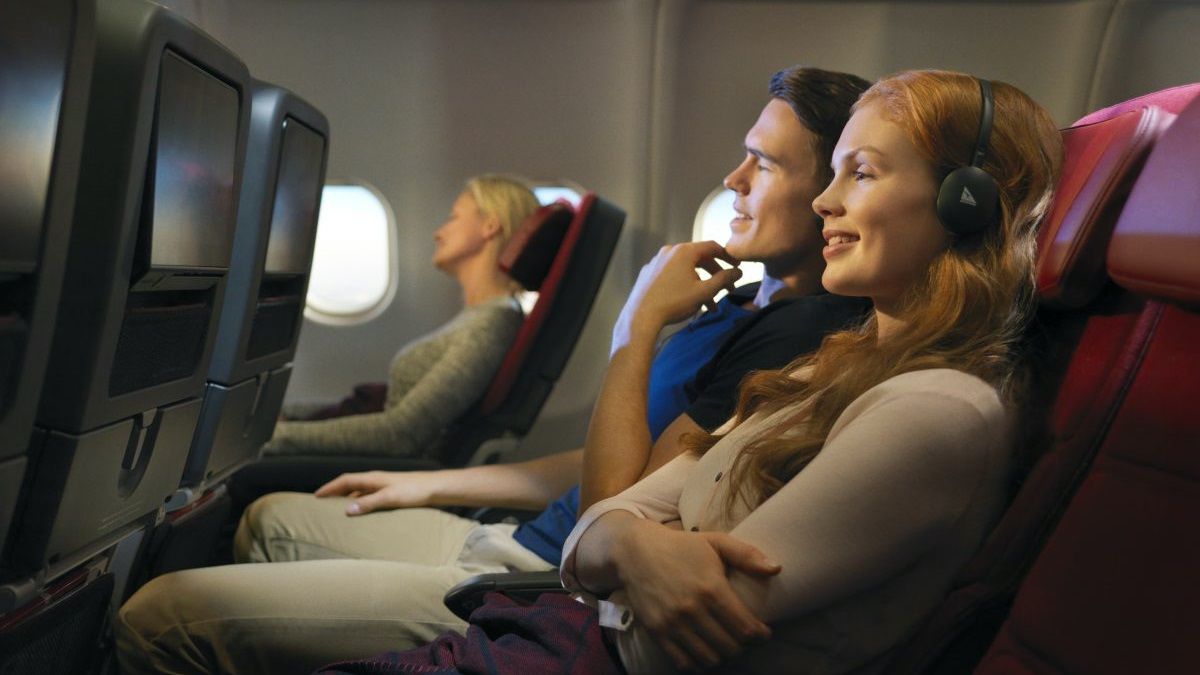
With Australia moving closer to restoring regular domestic travel and some international flights as well, Qantas is hoping for an exemption from regular social distancing rules so that it can fill every seat on every flight: including the dreaded middle seat.
Some airlines overseas have been keeping middle seats vacant to provide further space between passengers in the cabin, but Qantas Group CEO Alan Joyce argues against a ‘middle seat free’ policy.
“Even if you take the middle seat as being empty, that's 60 centimetres” between passengers in the same row, Joyce told ABC’s 7.30. “The social distancing rules are supposed to be 1.5 metres. If you did that, you'd have very few people on an aircraft and the airfares would have to be very high."
Qantas has been operating a number of repatriation flights from overseas on behalf of the Australian Government, on which middle seats are regularly filled to carry as many passengers as possible, which the Government is said to be happy with.
“We just need to get those practices that are on those charter flights into the domestic operation, which is our intent," Joyce continued. "There's been no known transmission of COVID-19 passenger to passenger or passenger to crew, and there's huge tracking been done on that in this country."
"We have the protections of how we clean aircraft, and if we put other protections in place, we think we can make a case and to make that absolutely secure and give people confidence that it's very safe to travel."
Industry body backs approach
The International Air Transport Association (IATA) – to which Qantas belongs – encourages its member airlines to fill middle seats where they can, making a similar case.
“IATA does not recommend restricting the use of the ‘middle seat’ to create social distancing while onboard aircraft,” the organisation said last week. “Evidence, although limited, suggests that, the risk of virus transmission on board aircraft is low even without special measures.”
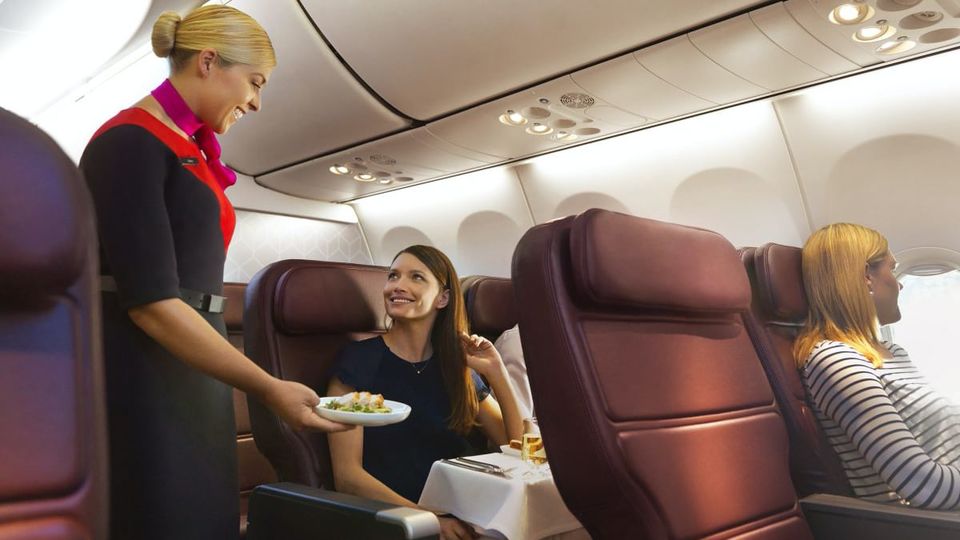
IATA argues that the nature of air travel lessens the risk of COVID-19 transmission compared to other forms of transport because passengers all face forwards with limited face-to-face interaction, and the seats themselves provide something of a barrier against transmission to passengers both in front, and behind.
It adds that air flow in the cabin – which moves from the ceiling down to the floor – also helps reduce the potential of transmission, explaining that “air flow rates are high and not conducive to (respiratory) droplets spread in the same way as in other indoor environments.”
With cabin air normally captured through vents at floor level, the air filters on modern aircraft purify that air to “hospital operating theatre quality” before releasing it back into the cabin via the ceiling, where the cycle repeats.
There's also a more basic concern: the harsh bottom line of economics. IATA claims that leaving the middle seat vacant would cripple airlines’ ability to recover and drive airfares up by around 50%, at time when airfares will need to be low in order to spike demand and get people flying again.
"Without the ability to pass on those costs in higher fares, many operations are going to really struggle to be financially viable,” warned IATA chief economist Brian Pearce. The majority of airlines would lose money if average load factors fell below 62%, which would likely be the case if every middle seat was left vacant.
Some airlines adopt social distancing
However, not all airlines are following IATA's lead. Qantas’ alliance partner Japan Airlines is just one of many carriers proactively blocking middle seats on flights, as well as aisle-side armchairs where seats are in pairs.
JAL says that while temporary, this restriction is in place “to provide customers peace of mind”, with a typical Boeing 737 flight having 57 seats unavailable for purchase, of a total of 145 seats on the plane.
Blocked middle seats are also commonplace in the United States for the time being, with American Airlines, Delta, Southwest and United Airlines all enacting various restrictions on passenger selection of middle seats.
In some cases, middle seats are still being filled, such as when family members travel together – but are otherwise being kept vacant where possible.
Also read: Aircraft seatmaps in the age of social distancing
New aircraft seats for the 'social distancing' era
The possibility of prolonged social distancing recommendations on flights has led the boffins at London-based Factorydesign to create its new Isolate module to help enforce inflight social distancing.
While still in early development, the Isolate kit clamps onto the armrests of any standard economy seat to provide “maximum personal space and separation for adjacent passengers,” Factorydesign says.
A lightweight tabletop supports a vertical screen made from either translucent thermoplastic or a lightweight foam with cleanable leather trim, providing a sense of security as well as privacy for passengers on either side.
The Isolate’s shape and surfaces are designed to remove any dirt traps and be quickly and easily cleaned between flights.
Factorydesign also says the Isolate will “have a life after the Covid-19 era” by converting short-range economy seats into a Euro-business style offering.
Also read: What is 'Euro business' business class?

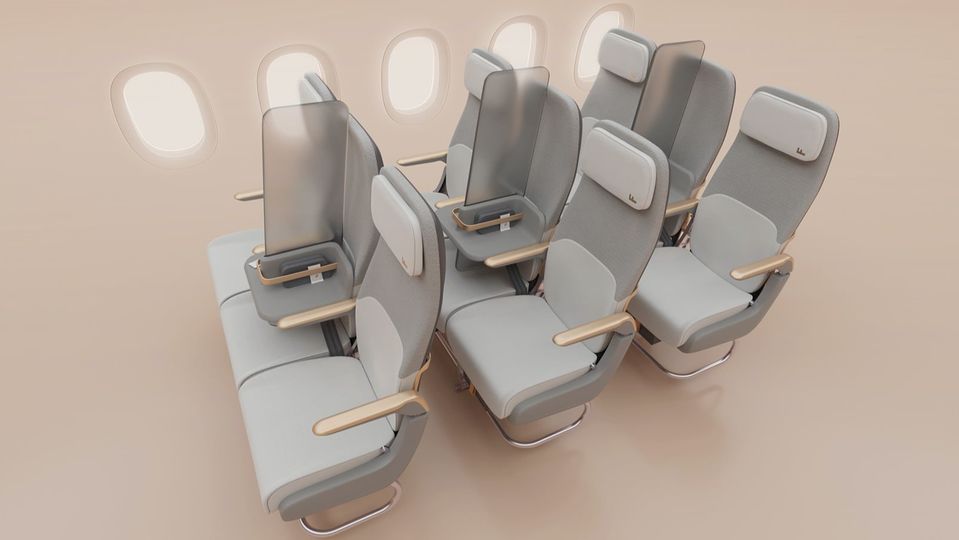
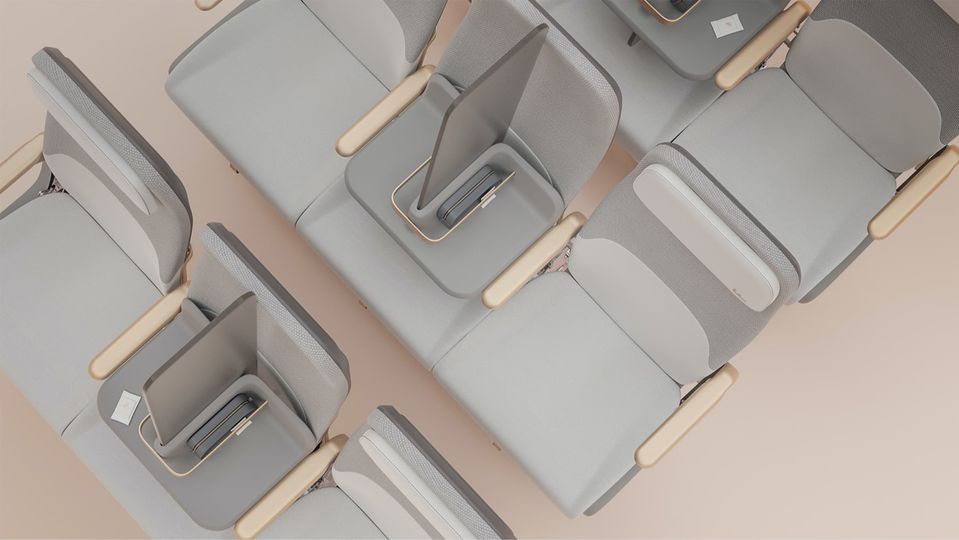
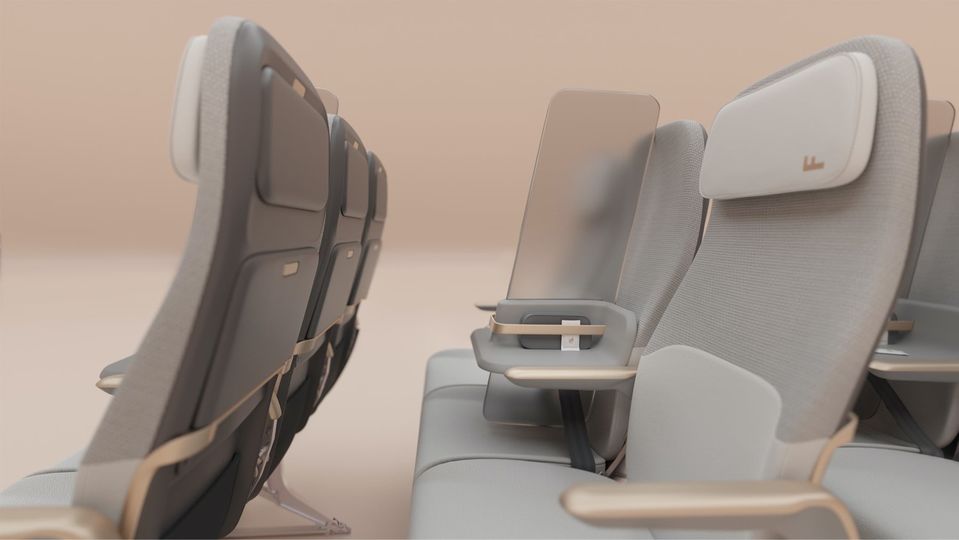
Etihad - Etihad Guest
06 Apr 2012
Total posts 124
With so many companies now embracing web conferencing solutions such as Zoom and Microsoft Teams for their meetings, I would have thought that adopting a 'middle seat free' option would have been a useful short-term measure for Qantas to entice corporate customers to fly again. Particularly over the winter period normally associated with flu season in Australia.
17 Jul 2014
Total posts 5
Completely agree. My firm would eventually allow me to travel interstate for work if I wanted to, but I'm not boarding a full plane.
May I remind Alan that we're in a global PANDEMIC. It's not some minor economic blip, it's a health crisis.
Blocking out a middle seat is, frankly, the least airlines can do if they want to have any semblance of business activity. Otherwise, they may as well stay grounded for another 3-6 months minimum.
Qantas - Qantas Frequent Flyer
07 Aug 2013
Total posts 248
Work for a major company and business travel unless critical is restricted - too much risk for company. No more attending conferences, trips for meetings - all to be done via video. We are out 1 major company of many out there in Aus - business travel will suffer immensely for short to med term future.
24 Aug 2011
Total posts 1224
I think you're right. Our complany is also looking at an ongoing 30% saving in travel as we come out of the crisis with zero discretionary travel for conferences or training in next year. A 30% reduction equates to over $500K per annum saving to company and revenue loss to airlines and hotels.
24 Aug 2011
Total posts 1224
Whilst I suspect QF may succeed in not having the middle seat rule imposed in Australia, I do think the cost will be all passengers have to be temperature checked on boarding and wear masks throughout the flight. Perversely, such restrictions will probably scare people away from air travel and mean the chance of an empty middle seat is increased.
Qantas - Qantas Frequent Flyer
21 Jan 2014
Total posts 320
Why can't they just put that Perspex thing between each seat anyway and not in the centre of the middle seat, it could stay there permanently, keep people from spilling over into the seat next to them as well, that looks great.
09 Apr 2020
Total posts 11
Might be a challenge to pass safety rules for evacuation?
18 Aug 2015
Total posts 55
Claustrophobia and impedes safety
08 Feb 2018
Total posts 165
income before health - typical qantas
Qantas
03 Feb 2016
Total posts 11
60 blocked out seats on a 737, 100+ seats on a 330 means higher prices for the remaining passengers. Corporates will not pay higher prices in the current environment.
Qantas - Qantas Frequent Flyer
30 May 2013
Total posts 383
If it's good enough for Qantas, should restaurants be allowed to increase their patronage to 100 people at any one time so as to help their revenue too? C'mon Qantas, safety before profits!
13 Feb 2015
Total posts 70
Tone deaf from Qantas to even ask this question. Why should they be exempt when cafes/restaurants aren't?
Enforce the 1.5m rule for airlines. And that means only selling every second row, and chequerboard seat allocations. Basically, if you can reach out and touch another person you're too close.
17 Nov 2011
Total posts 27
Enforcing the full 1.5m restriction would force only one seat to be taken in a row of 3, and then only every second row filled. That's a maximum capacity of 28 people on a normal 737!
Qantas
31 Oct 2013
Total posts 12
Re the comment "Qantas has been operating a number of repatriation flights from overseas on behalf of the Australian Government, on which middle seats are regularly filled to carry as many passengers as possible, which the Government is said to be happy with."
These travellers are currently required to isolate in hotel for 14 days after arrival - even if they have been tested O.S.?
Therefore IMHO the government must believe there is a risk on this spreading on a plane.
18 Aug 2015
Total posts 55
Umm no, the self isolation is for passengers who got infected while overseas, not on the flight home
Qantas - Qantas Frequent Flyer
25 May 2017
Total posts 77
I would pay to block the middle seat if they had such an option.
Hi Guest, join in the discussion on Qantas hopes to fill middle seats with 'social distancing exemption'